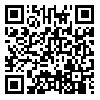Wed, Feb 18, 2026
[Archive]
Volume 13, Issue 4 (10-2023)
Iran J Ped Hematol Oncol 2023, 13(4): 260-268 |
Back to browse issues page
Download citation:
BibTeX | RIS | EndNote | Medlars | ProCite | Reference Manager | RefWorks
Send citation to:



BibTeX | RIS | EndNote | Medlars | ProCite | Reference Manager | RefWorks
Send citation to:
Keikhaei B, Yousefi H, Alghasi A, Sharhani A, Khazaei R. Frequency of Red Cell Alloimmunization in Patients with Thalassemia Major: A Report from the Southwest of Iran. Iran J Ped Hematol Oncol 2023; 13 (4) :260-268
URL: http://ijpho.ssu.ac.ir/article-1-796-en.html
URL: http://ijpho.ssu.ac.ir/article-1-796-en.html
Thalassemia & Hemoglobinopathy Research Center, Health Research Institute, Ahvaz Jundishapur University of Medical Sciences, Ahvaz, Iran.
Abstract: (1213 Views)
Background: The mainstay of managing severe β-thalassemia remains lifelong blood transfusion. Mismatched red blood cell phenotypes between donors and recipients in multiple blood transfusions can result in the development of alloimmunization in recipients. The aim of this study was to determine the frequency of major and subgroup antigens and their phenotypes in thalassemia major patients.
Materials and Methods: This cross-sectional descriptive study was performed on 105 patients with thalassemia major who referred to Baghaei Hospital in Ahvaz in 2021. Their alloimmunization to erythrocyte antigens was determined with standard tubular antibody search kits.
Results: Among the thalassemia major patients participating in the study, 51 were female (48.45%). The mean age of the participants was 21.10 ± 5.8 years. Out of the 105 patients studied, 26 had detectable alloantibodies in the serum (24.7%). The two groups of patients with positive and negative alloantibodies were significantly different in terms of Rh and C blood groups (P-values of 0.03 and 0.05, respectively). There was no significant association between the existence alloantibody and age, gender, spleen condition and the time of first transfusion (P > 0.05).
Conclusion: It was concluded that red blood cell matching, at least for Rh and C groups, is necessary to prevent alloimmunization in thalassemia major patients.
Materials and Methods: This cross-sectional descriptive study was performed on 105 patients with thalassemia major who referred to Baghaei Hospital in Ahvaz in 2021. Their alloimmunization to erythrocyte antigens was determined with standard tubular antibody search kits.
Results: Among the thalassemia major patients participating in the study, 51 were female (48.45%). The mean age of the participants was 21.10 ± 5.8 years. Out of the 105 patients studied, 26 had detectable alloantibodies in the serum (24.7%). The two groups of patients with positive and negative alloantibodies were significantly different in terms of Rh and C blood groups (P-values of 0.03 and 0.05, respectively). There was no significant association between the existence alloantibody and age, gender, spleen condition and the time of first transfusion (P > 0.05).
Conclusion: It was concluded that red blood cell matching, at least for Rh and C groups, is necessary to prevent alloimmunization in thalassemia major patients.
Type of Study: Research |
Subject:
Hematology
Received: 2023/07/15 | Accepted: 2023/09/12 | Published: 2023/10/18
Received: 2023/07/15 | Accepted: 2023/09/12 | Published: 2023/10/18
Send email to the article author
| Rights and permissions | |
 |
This work is licensed under a Creative Commons Attribution-NonCommercial 4.0 International License. |





